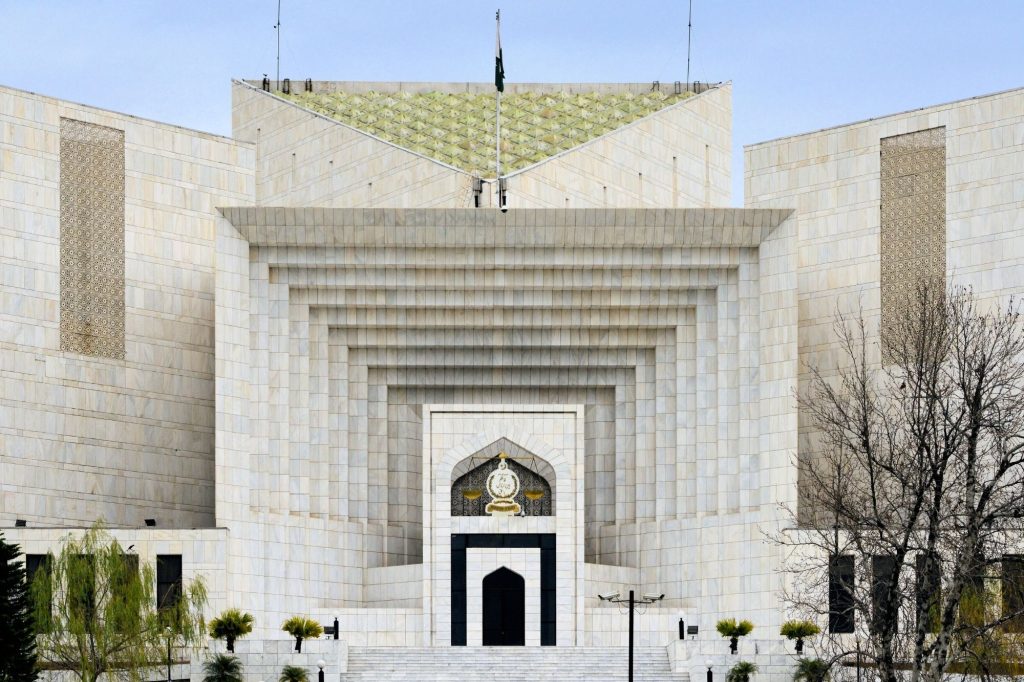In a recent judicial decision, the Supreme Court (SC) issued its verdict with a majority of 4-1. This case revolved around the challenge brought forth by the Pakistan Tehreek-e-Insaf (PTI) chairman and others against the military trial of civilians who were involved in the May 9 riots, sparked by the arrest of PTI chief Imran Khan in the Al-Qadir Trust case.
The proceedings were overseen by a distinguished five-member panel from the apex court, headed by Justice Ijaz Ul Ahsan and consisting of Justice Munib Akhtar, Justice Yahya Afridi, Justice Sayyed Mazahar Ali Akbar Naqvi, and Justice Ayesha Malik.
The Attorney General of Pakistan, Mansoor Usman Awan, presented his arguments before the court. He articulated the necessity for a constitutional amendment in 2015 to establish military courts, particularly for the trial of terrorists. Responding to a query from Justice Ahsan, AGP Awan clarified that the individuals who had been subjected to military court trials included both local and foreign nationals.
AGP Awan further emphasized that the accused would be prosecuted under Section 2 (1) (D) of the Official Secrets Act, and a trial conducted under the Army Act would meet all the requirements of a criminal case. He assured the court that the trial of the May 9 accused would adhere to the procedural standards of a criminal court.
The decision on this matter was reserved by the Supreme Court after the Attorney General of Pakistan, Mansoor Usman Awan, concluded his arguments, which predominantly focused on the jurisdiction and extent of military courts in trying civilians under the purview of the Army Act.


